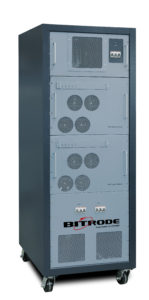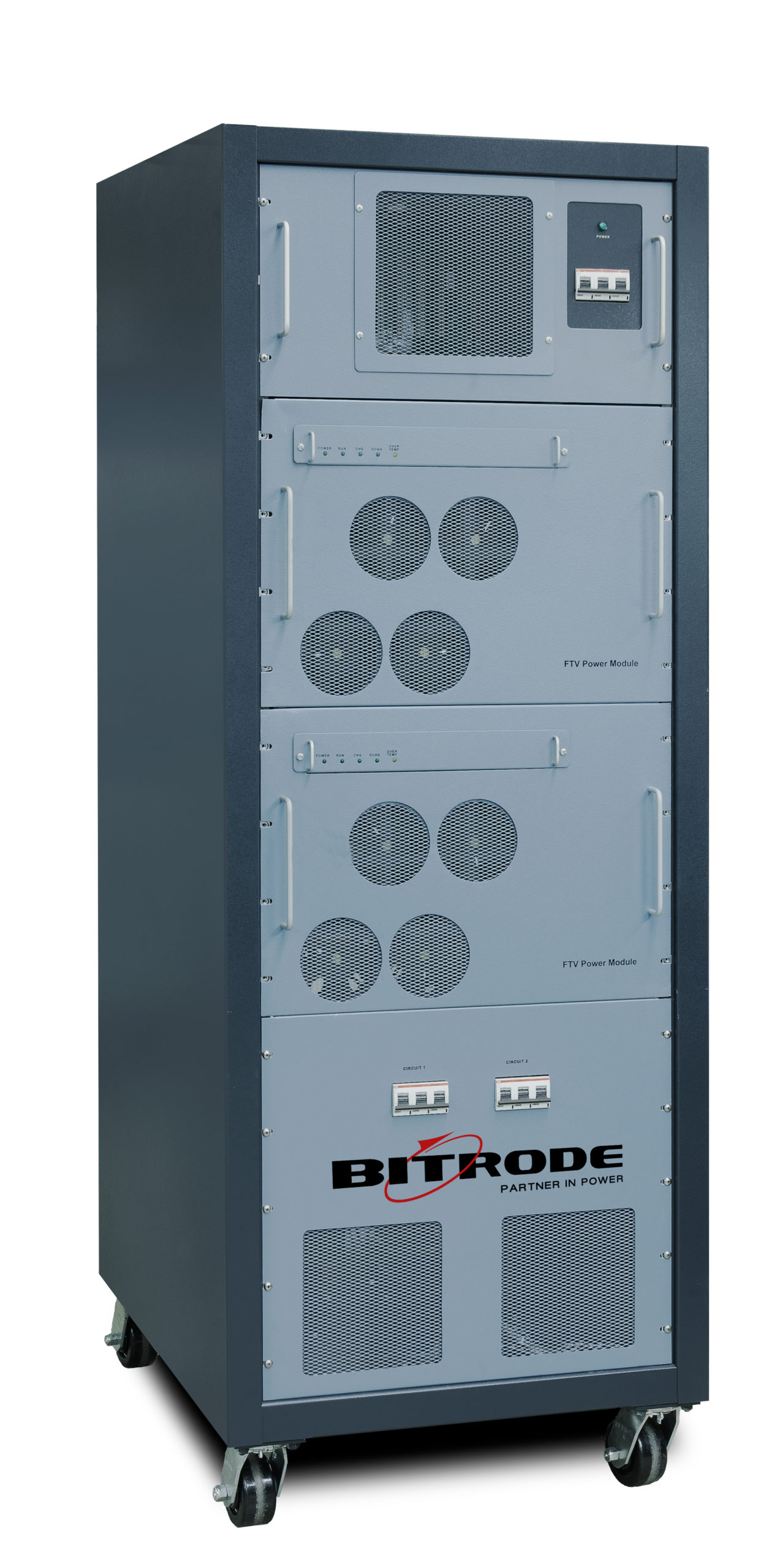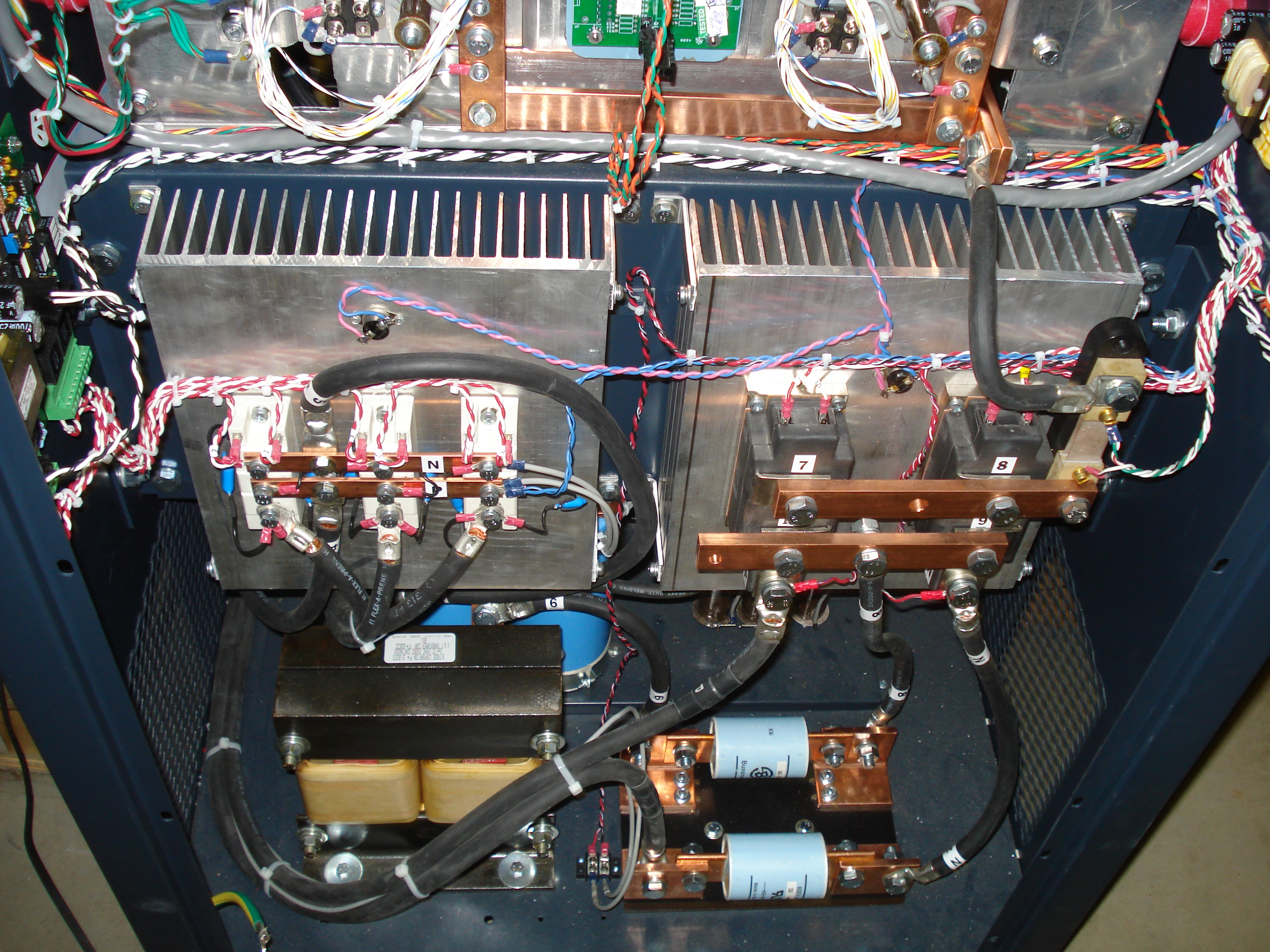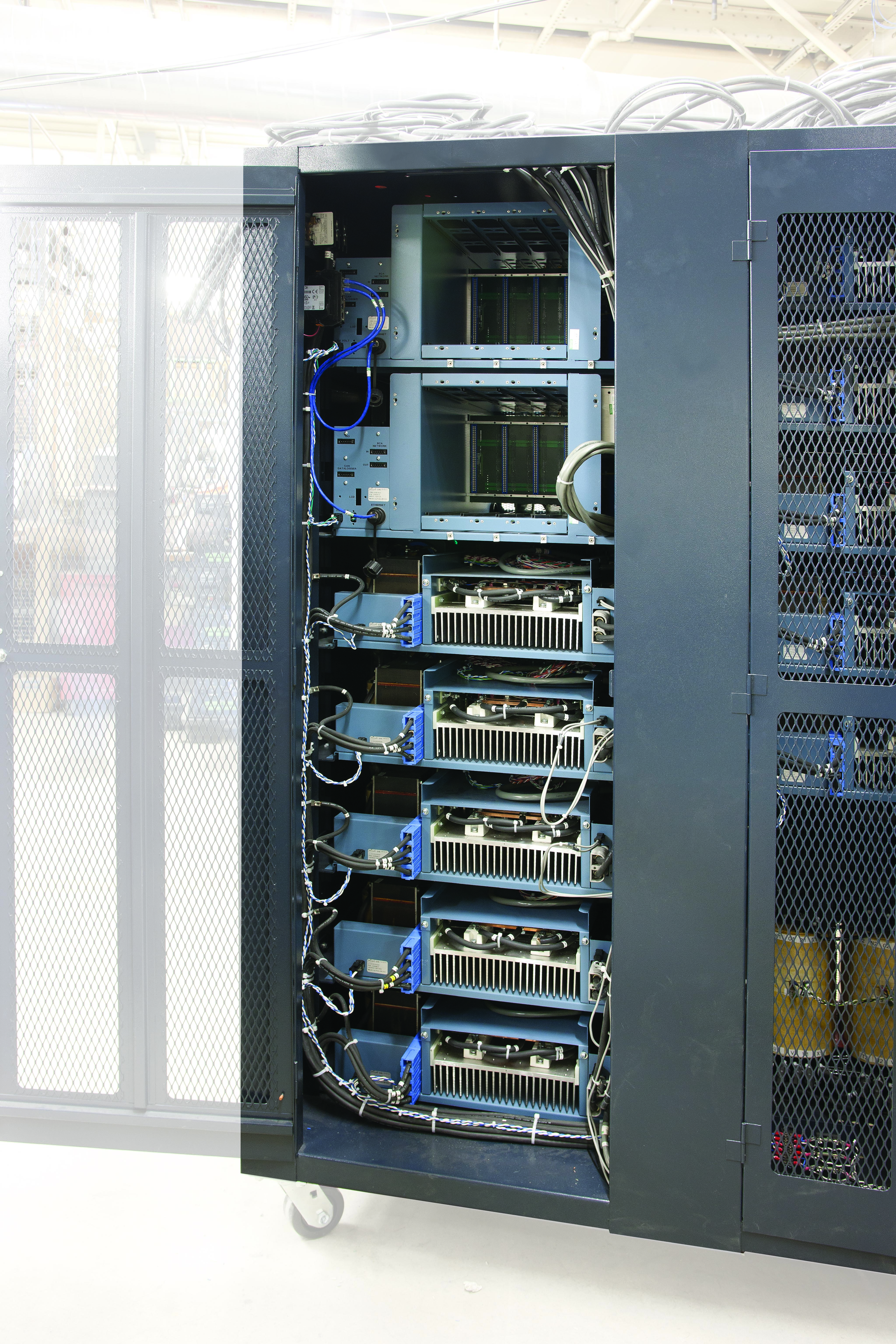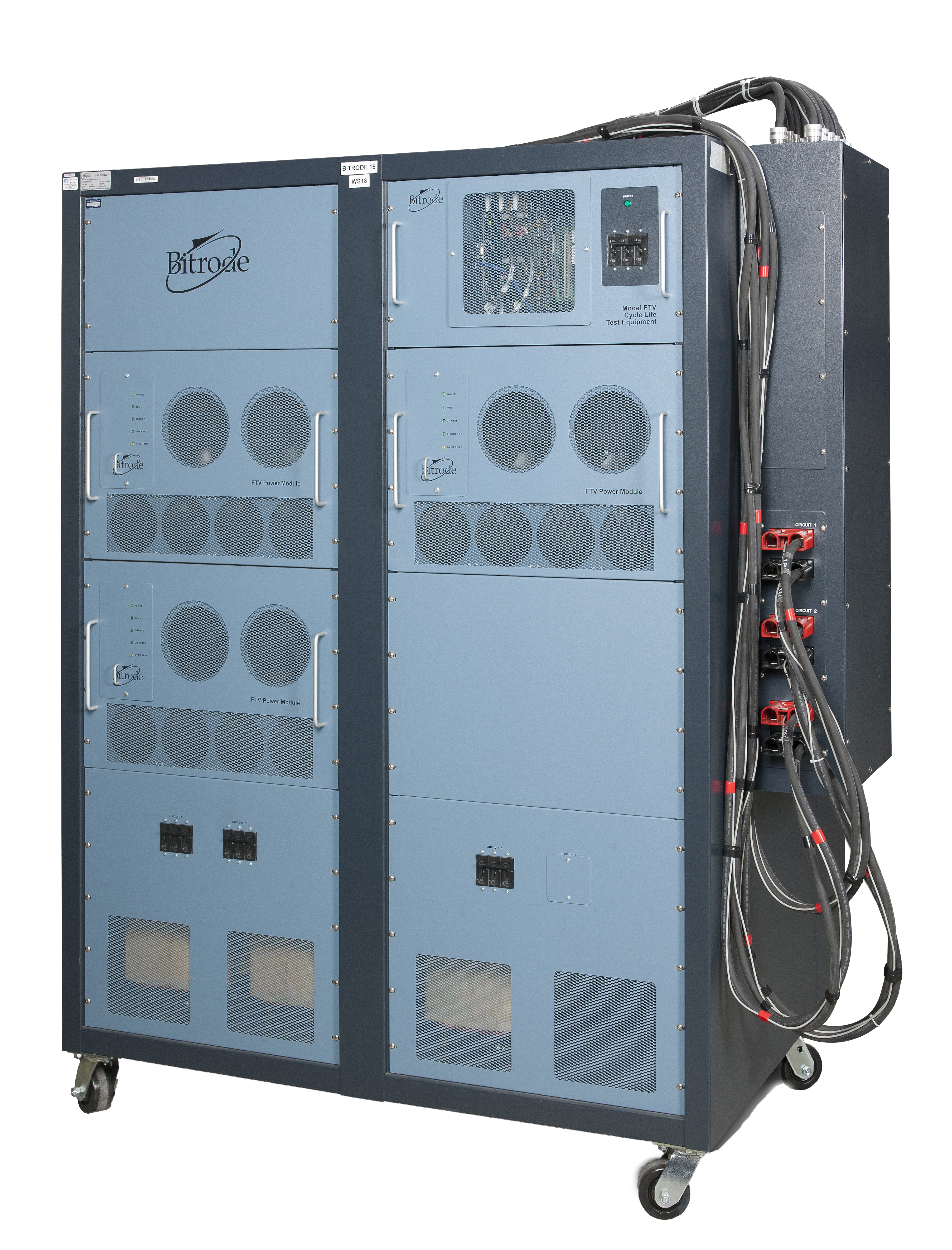Click HERE to download the datasheet PDF
Click here to download the Chinese Translated PDF
General Specifications
Voltage: 0-100V (higher voltages available)
Current: Up to 1000A (2000A in parallel), up to 4000A with external PCC
Power: up to 72kW (200kW in parallel), up to 288kW with external PCC
Circuits: up to 4
Network: Ethernet
Accuracy: ±0.1% of FS*
Data Sampling Rate: up to 10mS
*Accuracy values are conservative assuming operation will be through the standard temperature range of 0-40˚ C and RH from 10-90% (non-condensing). Units calibrated and maintained in a temperature and humidity controlled environment can expect an accuracy of 0.02-0.05%FS.
[bs_well size=”sm”][/bs_well]
Overview
Bitrode’s model FTV is a life cycle test system designed to perform standard electric vehicle, standby battery and supercapacitor tests. Designed for fast switching capability and high speed data acquisitions, the FTV is the ideal solution for demanding electric vehicle drive simulations.


